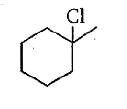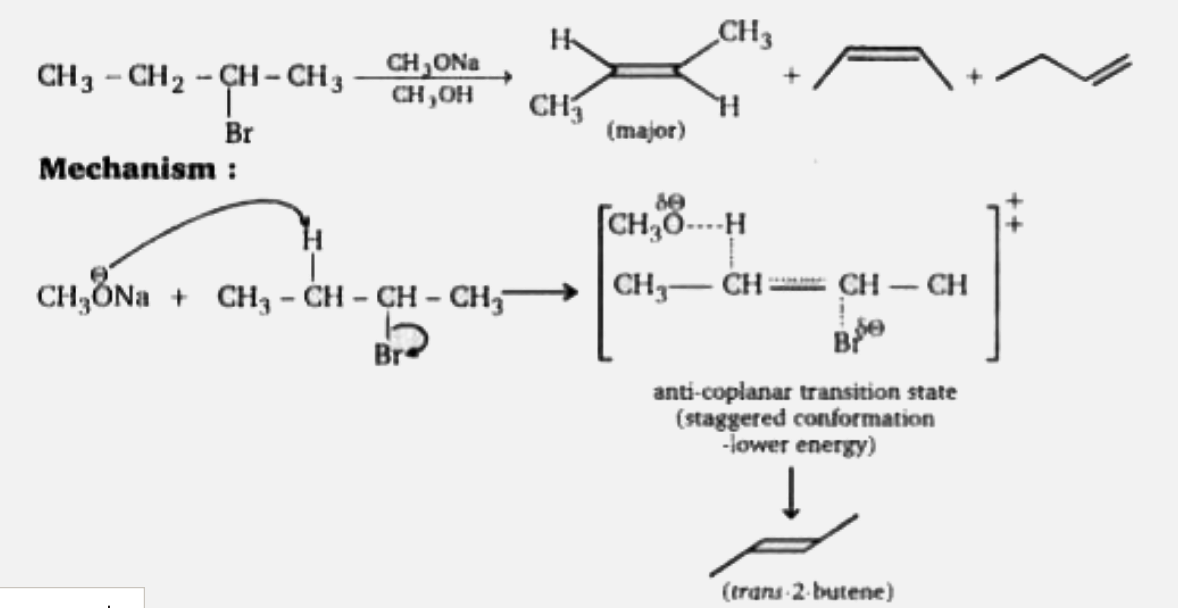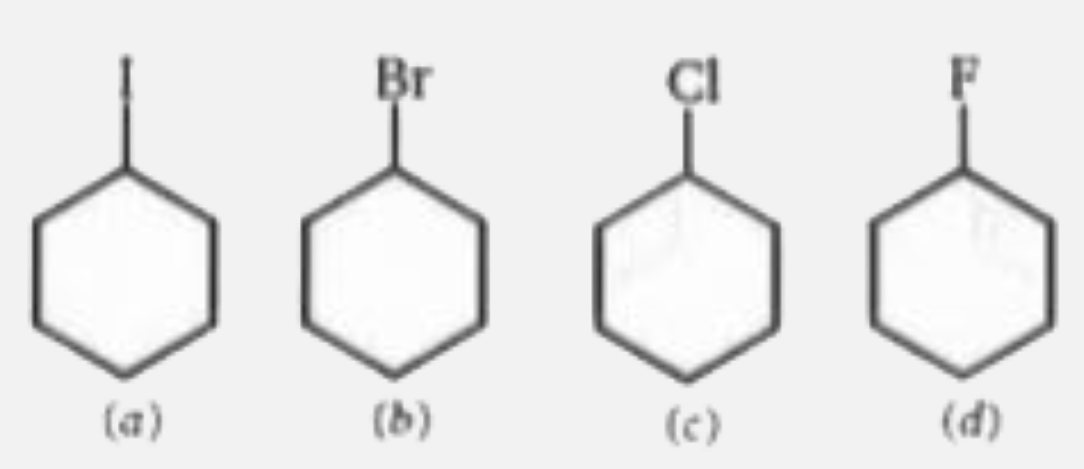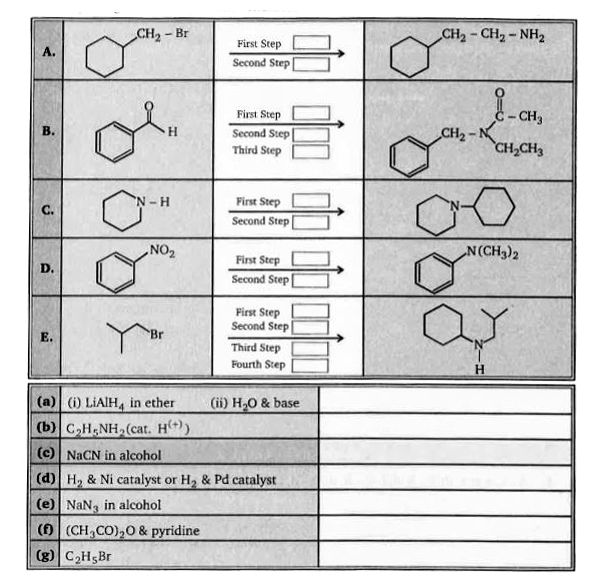SN1 and SN2 products are same with (excluding stereoisomer): Solution in Kannada



Ph−CH∣CH3−CH∣Cl−CH3
The correct Answer is:C
In case ofrearrangement SN1 and SN3 produce are different.
Topper's Solved these Questions
- ALKYL HALIDES (SUBSTITUTION REACTIONS)BOOK - MS CHOUHANCHAPTER - ALKYL HALIDES (SUBSTITUTION REACTIONS)EXERCISE - LEVEL-2
41 Videos
- ALKYL HALIDES (ELIMINATION REACTION) BOOK - MS CHOUHANCHAPTER - ALKYL HALIDES (ELIMINATION REACTION) EXERCISE - LEVEL-2
25 Videos
- AMINESBOOK - MS CHOUHANCHAPTER - AMINESEXERCISE - Level-2
1 Videos
Similar Questions
Statement - 1 : Nucleophilicity order in polar-protic solvent is I−<Br−<Cl−<F−
Statement-2 : Due to bigger size of I it is less solvated in polar-protic solvent.
View SolutionComprehension
E2 raction → Elimination bimolecular
In the general mechanism of the E2 reaction a strong base abstract a proton on a carbon atom adjacent to the one of the leaving group. As the abstracts a proton , a double bond forms and the leaving group leaves.

Identify the rate of reaction of given compounds in E2 reaction:

View SolutionFive amine syntheses are outlined below. In each reaction box enter a single letter designating the best reagent and conditions selected from the list at the bottom of the page.


View SolutionLet Sn=1+2+3++n and Pn=S2S2−1⋅S3S3−1⋅S4S4−1⋅⋅⋅SnSn−1 Where n∈N,(n≥2). Then limx→∞Pn=______
View SolutionA sequence contains the terms S_(1),S_(2),S_(3),...S_(n), where S_(2)=2&S_(n)=S_(n-1)+2S_(2) What is the value of S_(18)
View SolutionConsider the sequence of natural numbers s_(0),s_(1),s_(2),... such that s_(0)=3,s_(1)=3 and s_(n)=3+s_(n-1)s_(n-2) then
View SolutionS_(n)=sum_(n=1)^(n)(n)/(1+n^(2)+n^(4)) then S_(10)S_(20)
View SolutionLet Sn,n=1,2,2.... be the sum of infinite geometric series whose first term is n and the common ratio is . 1n+1.Evaluate Limn→∞S1Sn+S2Sn−1+S3Sn−2+.....+SnS1S21+S22+....+S2n
View SolutionAmong the given halides , which one will give same product in both SN2and SN2reaction

View SolutionSN1andSN2 reactions are
View SolutionLet Sn,n=1,2,3,… be the sum of infinite geometric series, whose first term is n and the common ratio is 1n+1. Evaluate limn→∞S1Sn+S2Sn−1+S3Sn−2+...+SnS1S21+S22+......+S2n.
View SolutionIf s_(n) denotes the sum of first 'n' natural numbers then S_(1)+S_(2)x+S_(3)x^(2)+.........+S_(n)x^(n-1)+......oo=(1-x)^(-n) then n is
View SolutionLet Sn=1+2+3+...+n and Pn=S2S2−1.S3S3−1.S4S4−1...SnSn−1, where n∈N,(n≥2)Thenlimn→∞Pn=__________.
View SolutionSn=1+2+3+....+nn then S21+S22+S23+.....+S2n=
View SolutionWhich of following compounds given same SN1 and SN2 product ?
View SolutionLet Sn,n=1,2,3,… be the sum of infinite geometric series, whose first term is n and the common ratio is 1n+1. Evaluate limn→∞S1Sn+S2Sn−1+S3Sn−2+...+SnS1S21+S22+......+S2n.
View Solution
